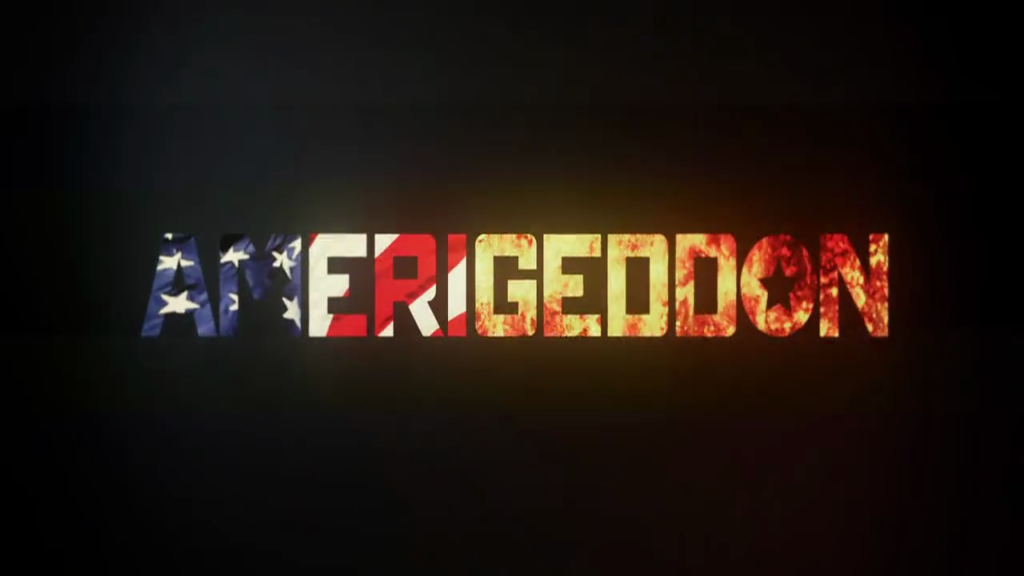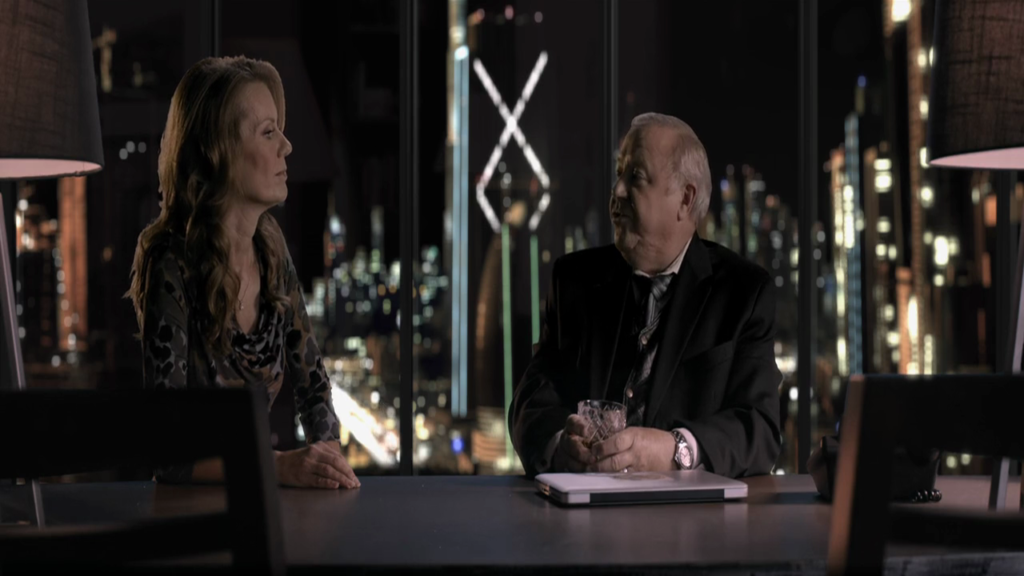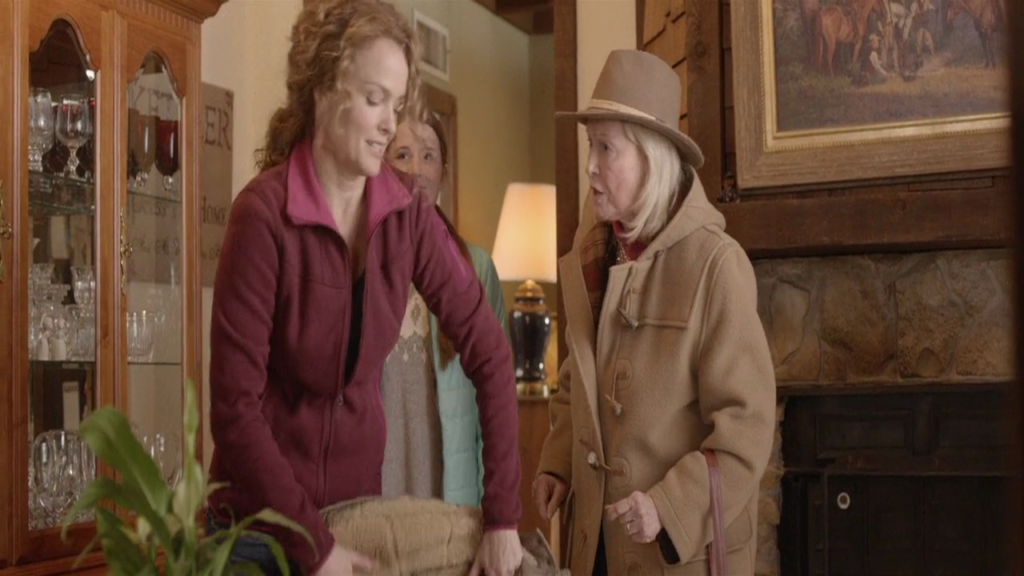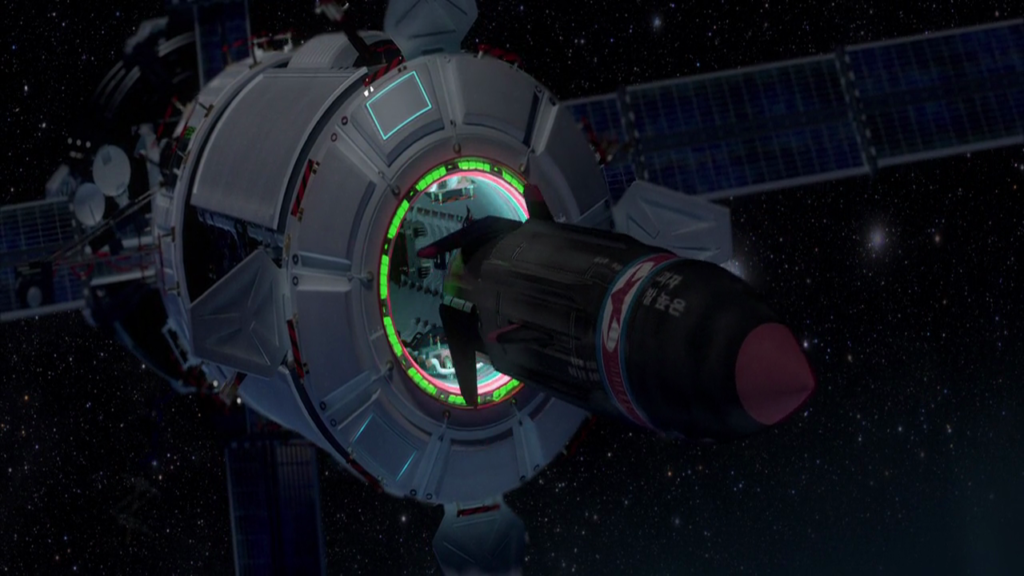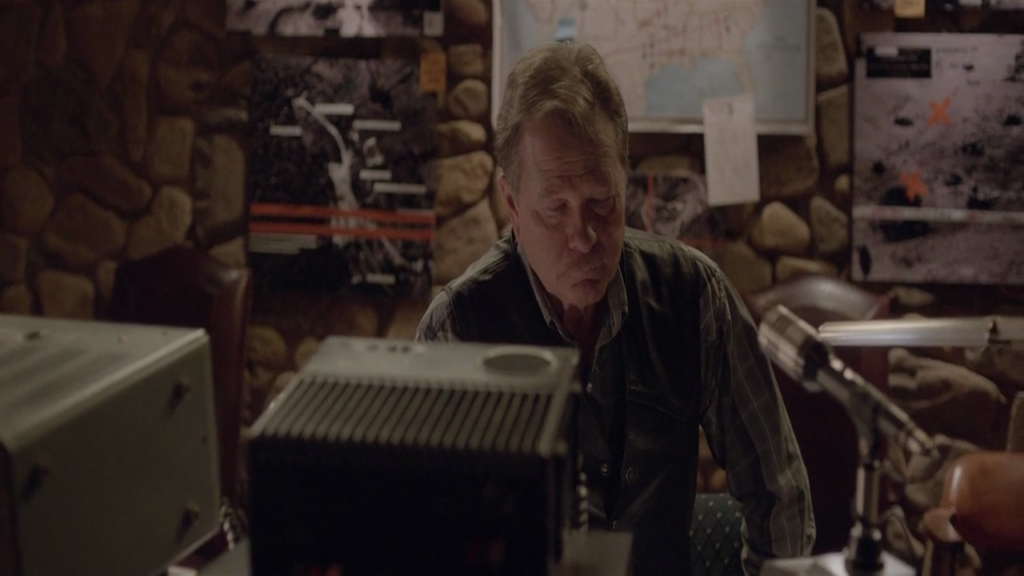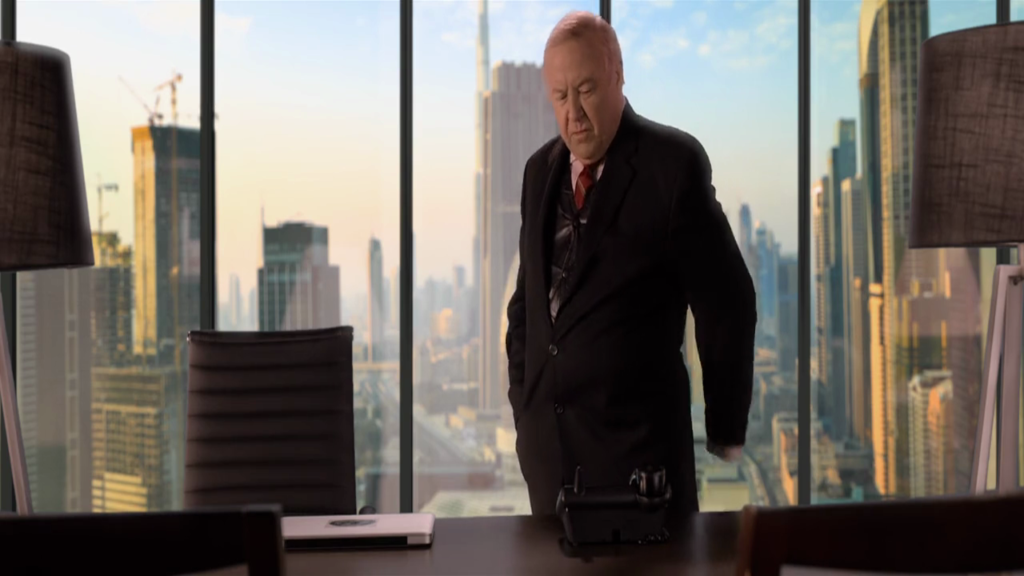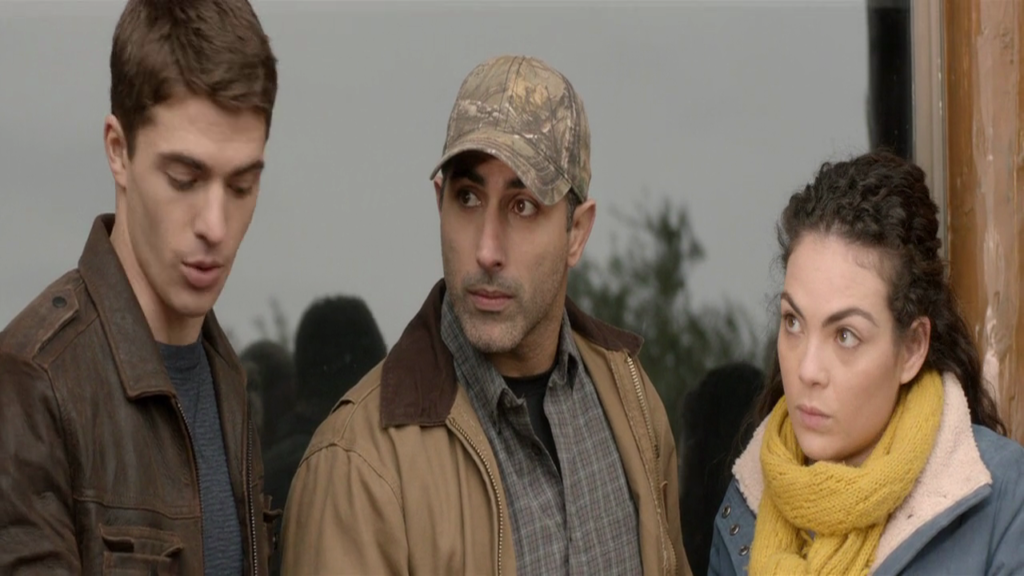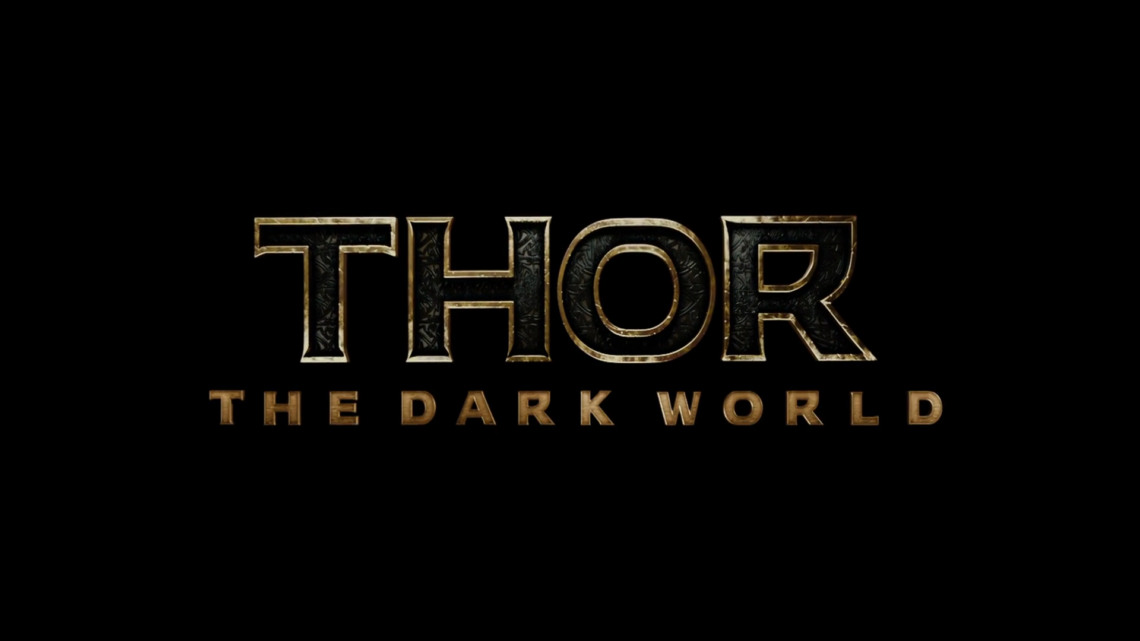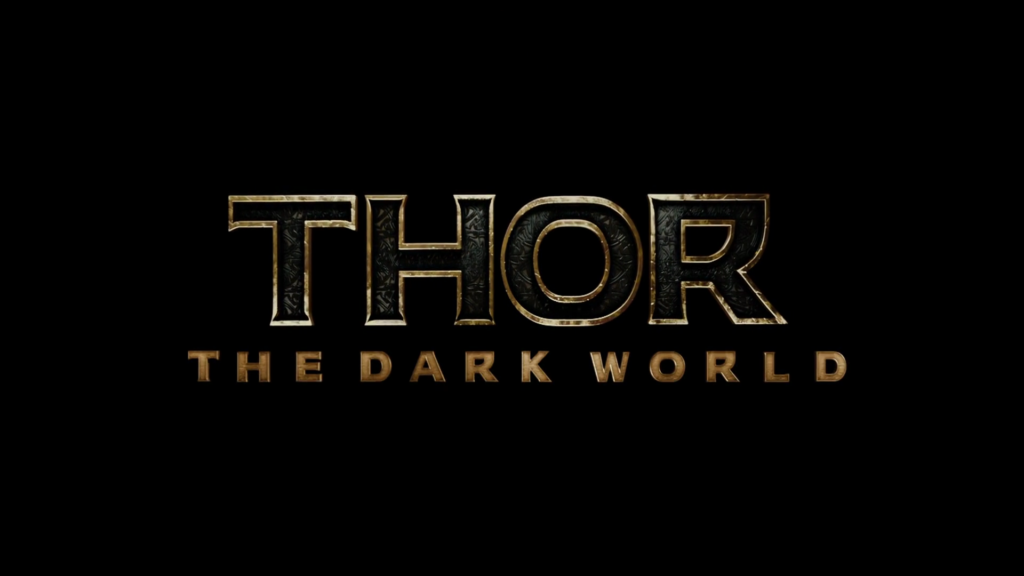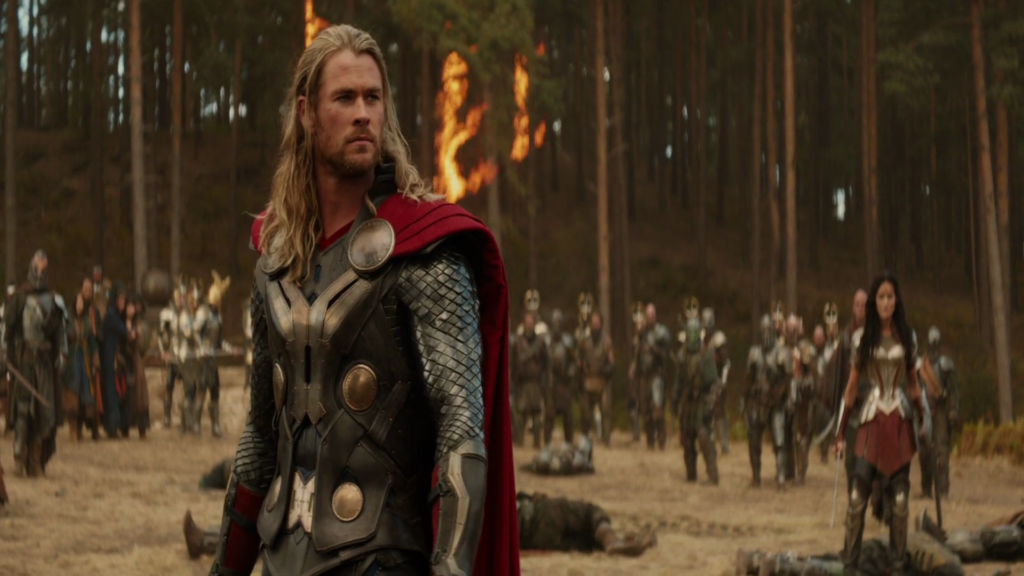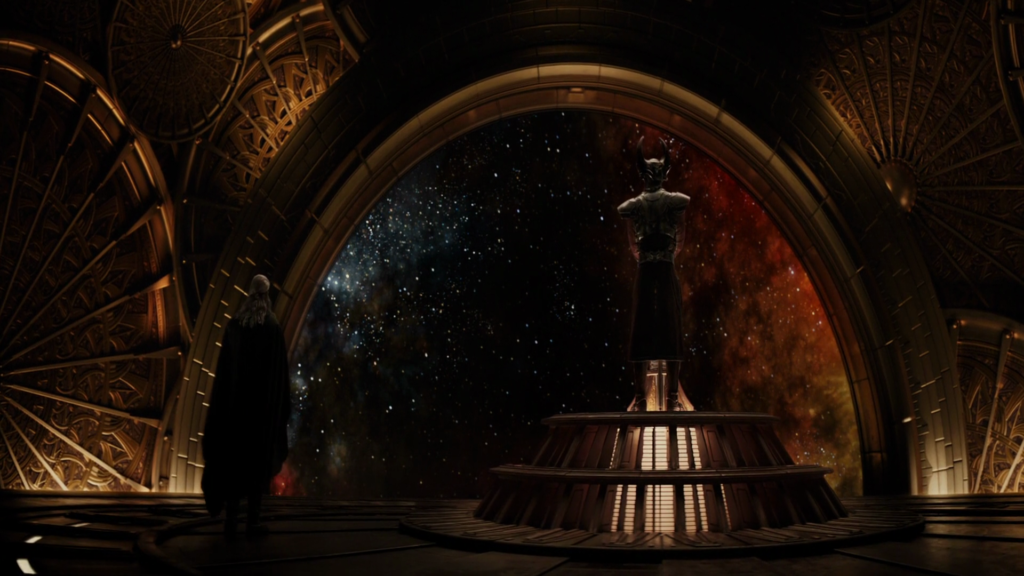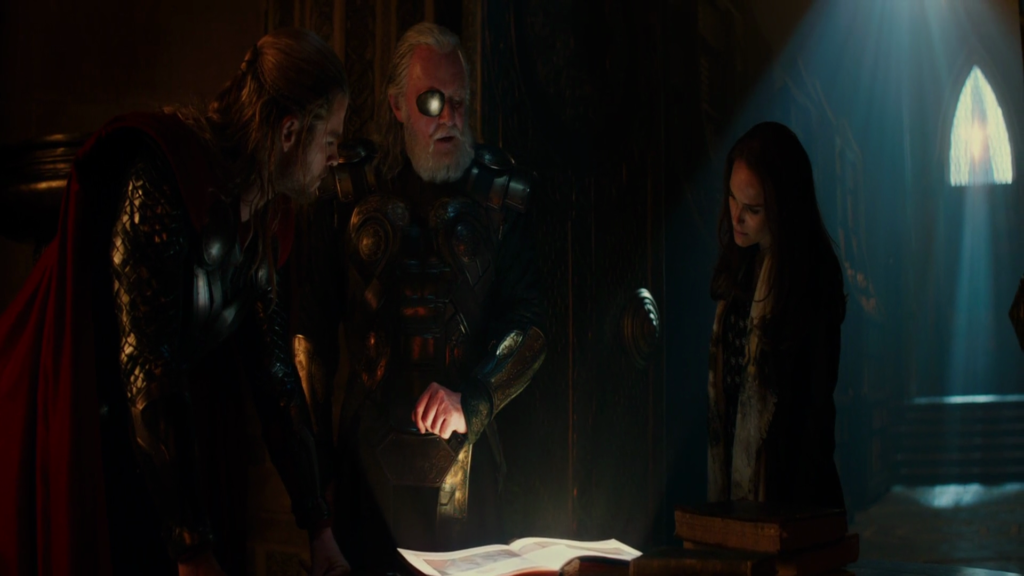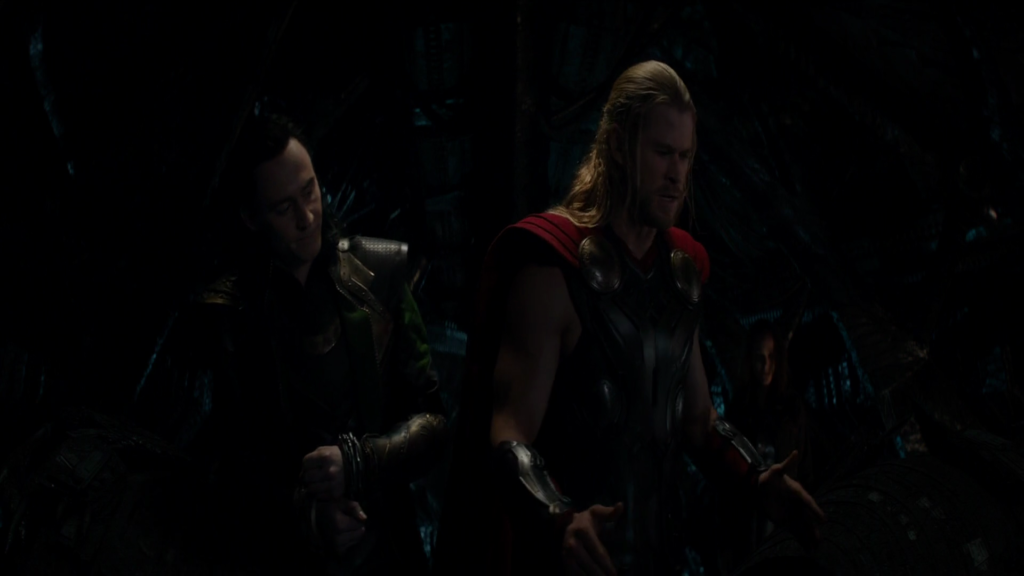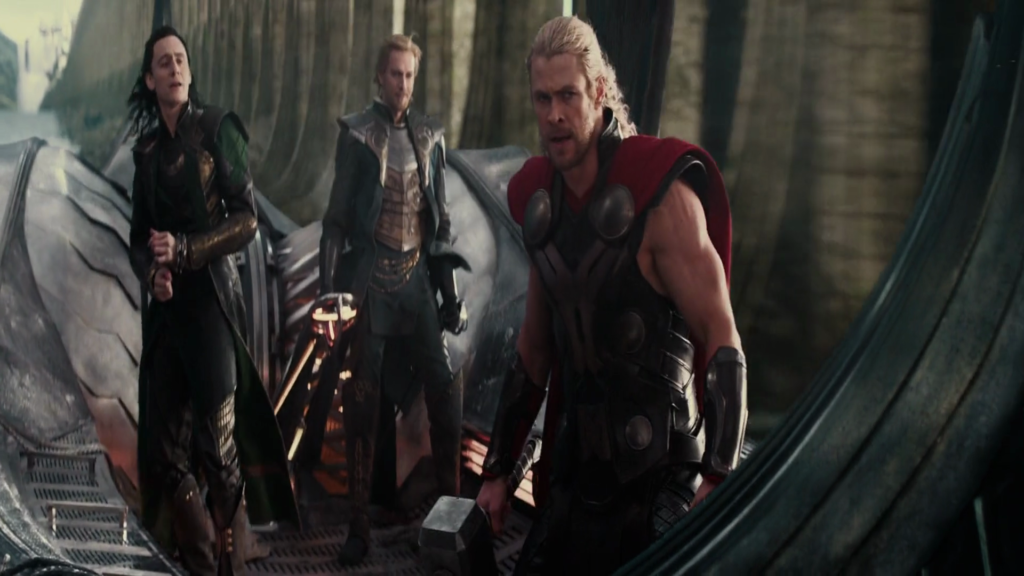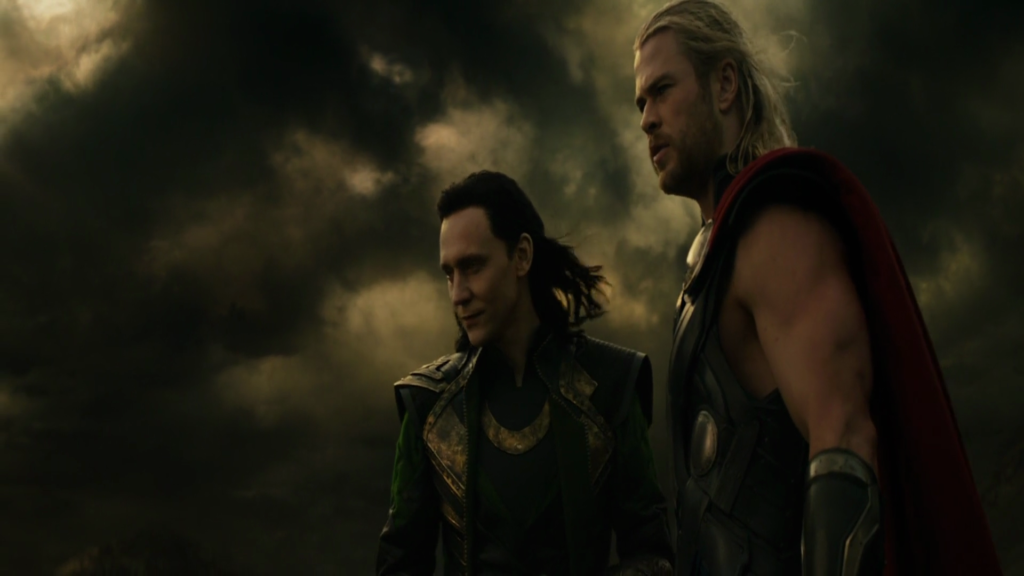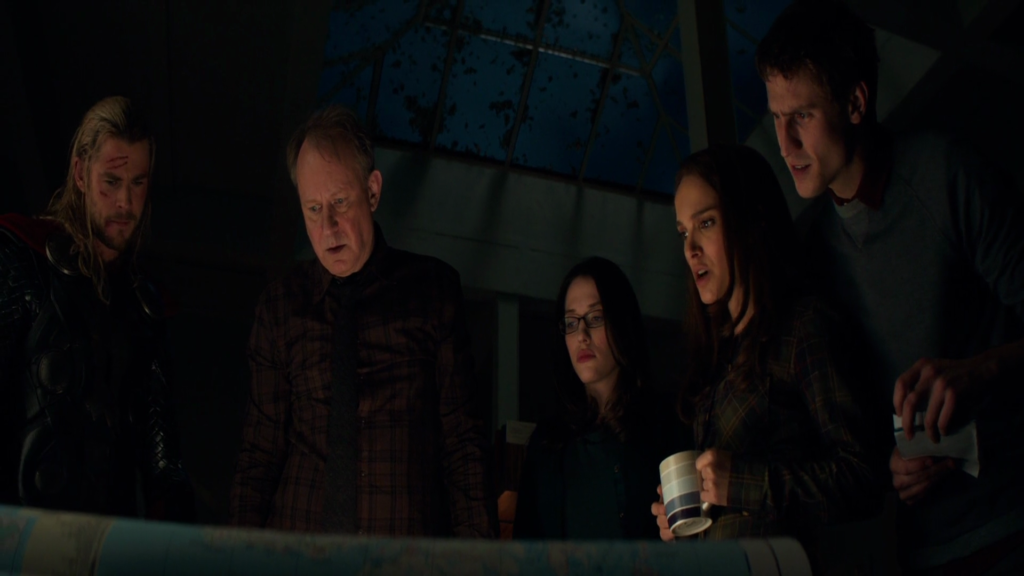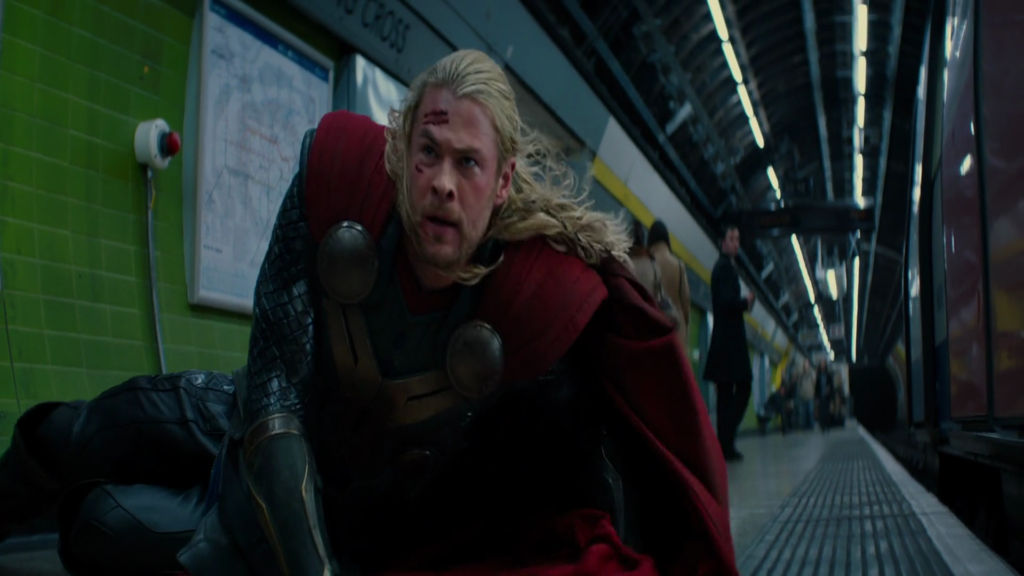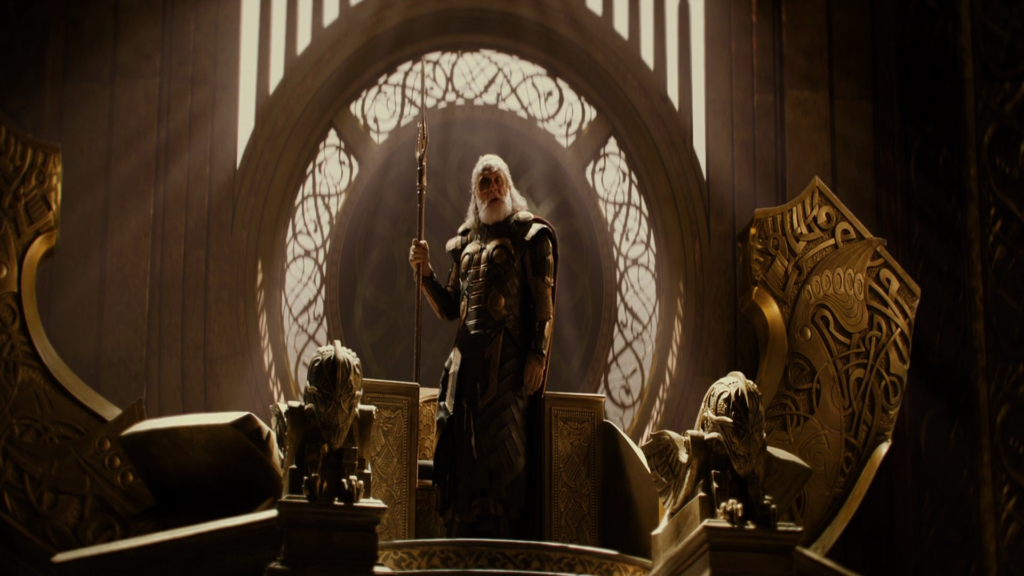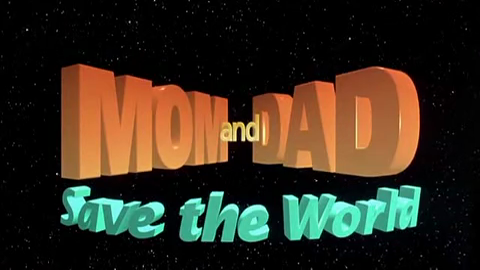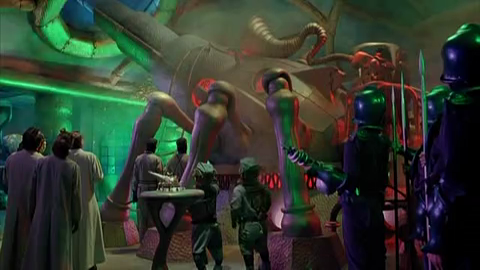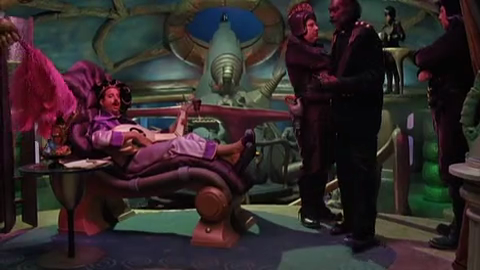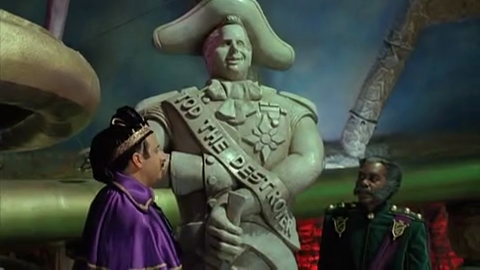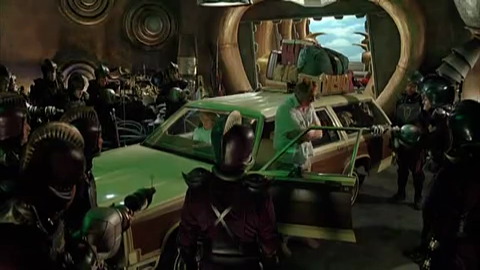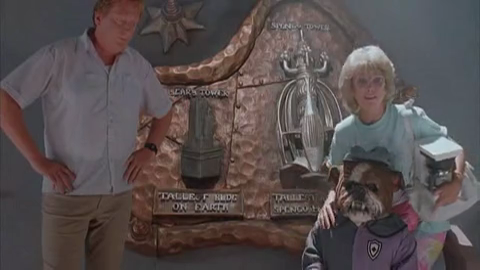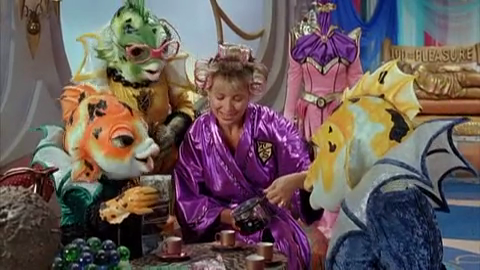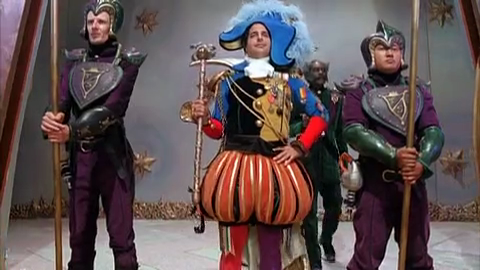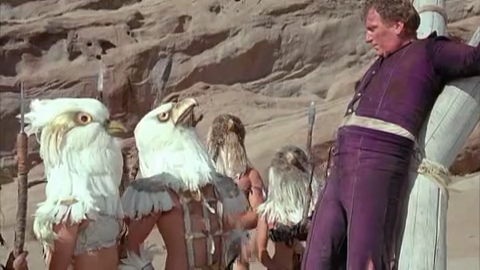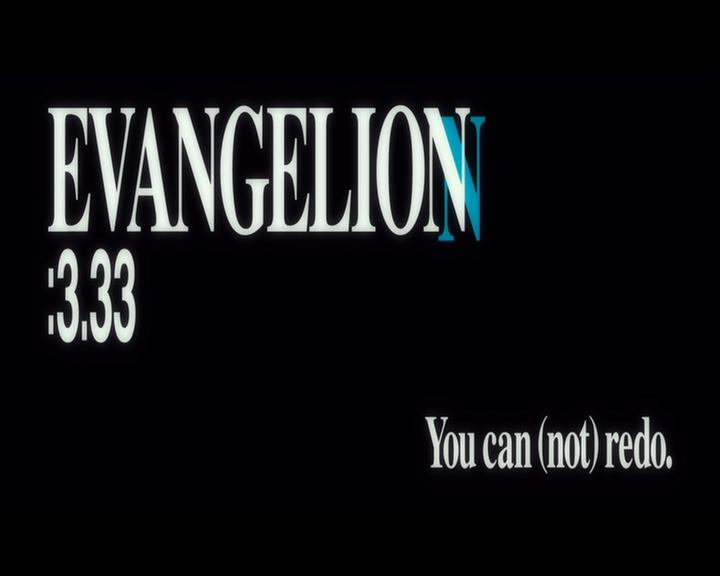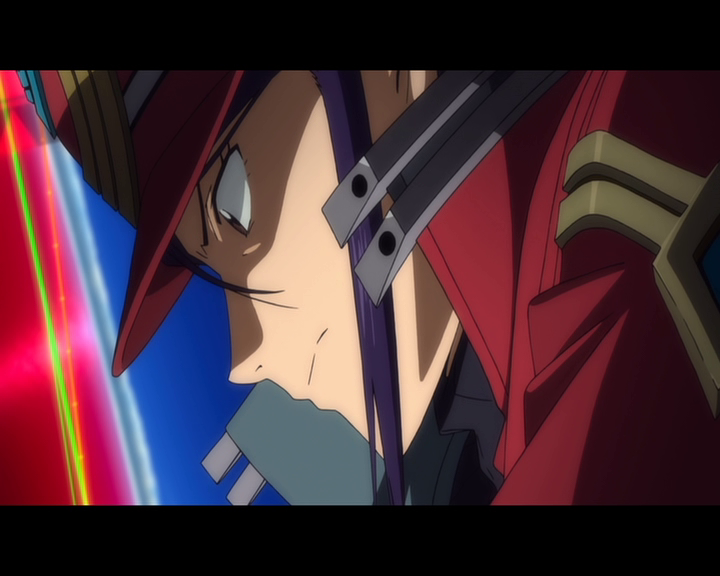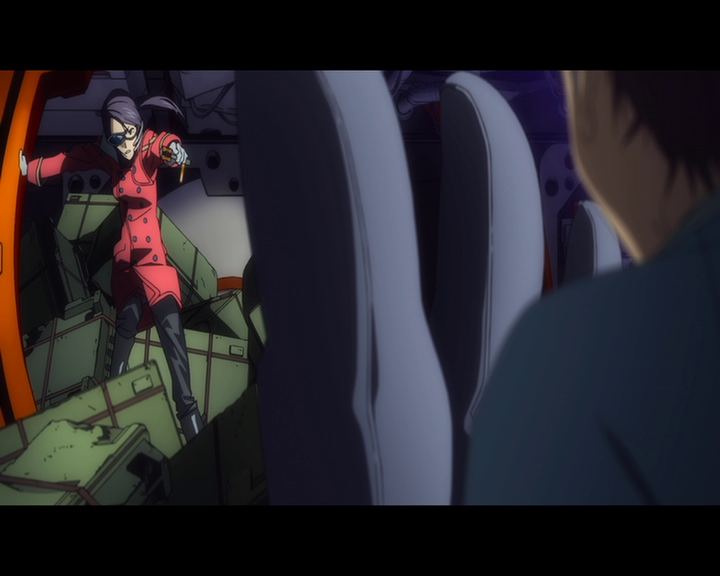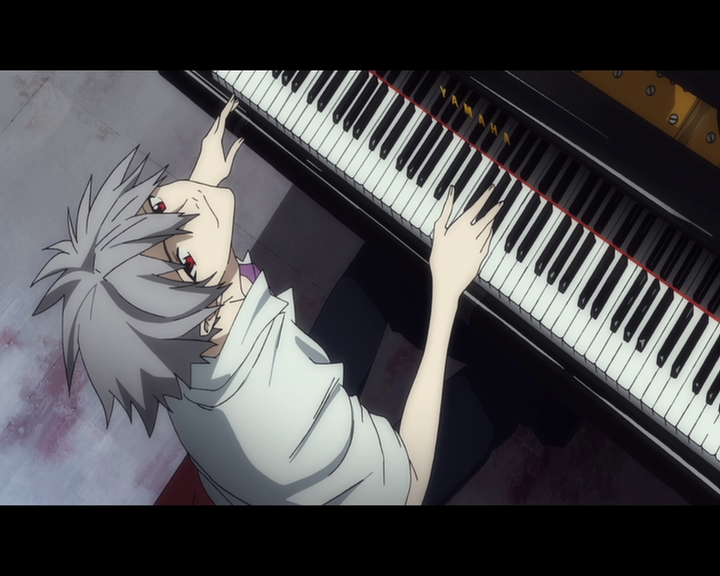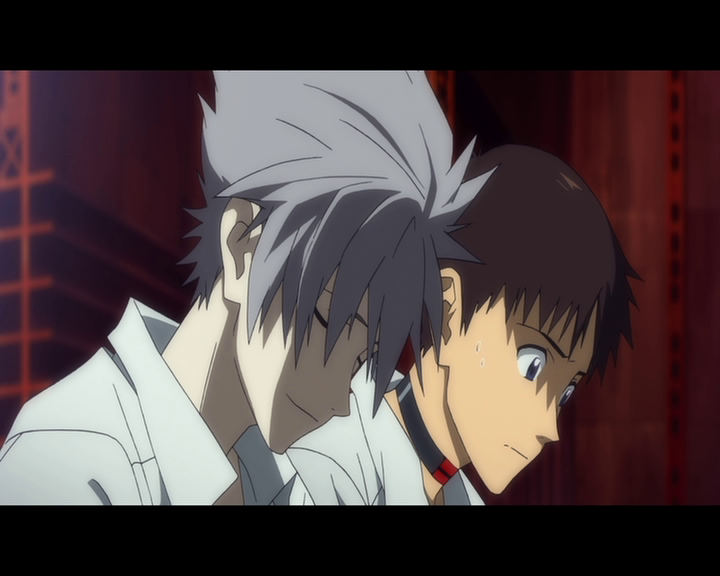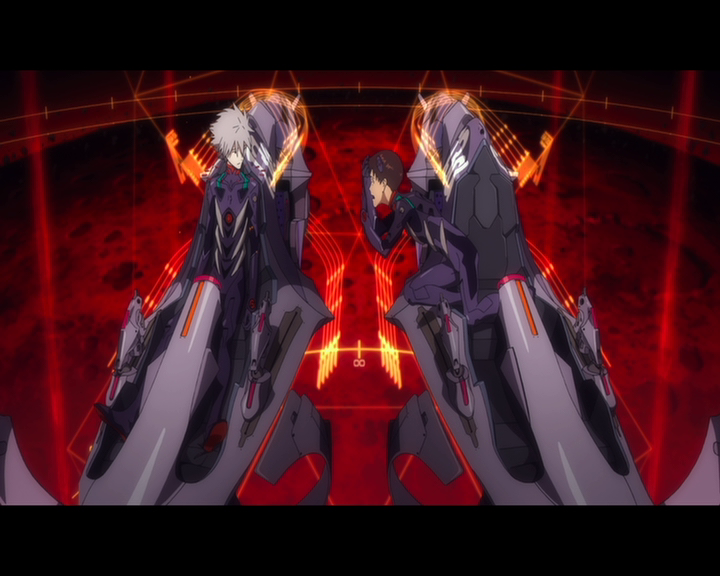-
#370 – Amerigeddon (2016)
Amerigeddon (2016)
Film review #370
Director: Mike Norris
SYNOPSIS: In the near future, where the president of the United States has signed over much of the country’s power to the United Nations, the governing body secretly launches an E.M.P. at the country to disable all electronics and use the attack as an excuse to declare martial law and to confiscate everyone’s guns. A group of people band together and decide to fight against the ‘tyranny’ of the United Nations occupying forces, and defend their second amendment rights.
THOUGHTS/ANALYSIS: Amerigeddon is a 2016 film and clearly meant to be a ‘warning’ about the dangers of Americans having their guns taken away n order for them to protect themselves against an overreaching government. The film starts off with a dire warning about the the dangers of an all powerful government, which will possess the ability to remove it’s citizen’s rights and sign them away to the “new world order”. This phrase is the typical boogeyman of the right-wing for which this film was obviously intended for to fulfil their fantasies of fighting back against their government, and it is constantly throwing the phrase out to try and make it sound as evil as possible. Using some out of context clips of politicians using this phrase (including the right wing’s other boogeyman, Barack Obama) to again create this all encompassing enemy of the people. Let’s be completely clear why this film was made: to scaremonger people about the possibility of the evil government coming to steal their guns (not that it is going to convince anyone other than those who hold those beliefs), and to fulfil the fantasies of those who think that they will one day be American heroes by using their guns to fight the oppressive regime of the new world order, or something equally implausible.
The story is set in the near-future, where the government and successive presidents have signed over most of their powers to the United Nations, who also see American citizens with guns as domestic terrorists. An E.M.P. is launched at the country and knocks out all of the power, giving the government an excuse to declare martial law and confiscate all of the citizen’s guns. Society descends into chaos as the characters find their way to each other to form some sort of resistance. It is quite apparent that this whole plot makes no sense…basically because the whole fantasy of rising up against the tyrannical new world order also makes no sense. Firstly, characterising the U.N. as an evil organisation intent on world domination is ridiculous and has no basis in reality. Secondly, what possible benefit would there be to destroying all the electronic devices in the U.S.? Given that a lot of global companies and assets are there, it doesn’t make any sense to wipe them all out. Thirdly, why would the new world order, if it really had control over all the governments in the world, feel so threatened by a bunch of ill-trained civilians in the middle of nowhere they would need to send in their army to wipe them out? Fourthly, the story is a direct copy of the film Red Dawn, while also managing to strip out anything interesting. Trying to understand the plot of this film is like trying to decipher the conspiracy theories that fuel it: it’s not possible, because they don’t make sense in the first place. They are hypothetical scenarios (fantasies) used to justify owning weapons and funding the organisations which relies on the fantasies peddled by this film.
The characters are themselves a bland cast of politicians, soldiers, and families who you would typically associate with the idea in this film: “real Americans” like people who own ranches in the middle of nowhere. The cast is not in any way diverse, and any elements that pretend to diversify or offer alternate view points are acts of tokenism, or just turn out to be the wrong path, such as Penny’s going to a ‘liberal arts college’, only to come back home to the safety of her gun-wielding family fighting against the world’s most powerful army (seriously…). The acting is all pretty bland and stale, and there’s no originality or interesting aspects to them. This is probably intentional so that viewers can fantasise about themselves being in such a position instead, allowing them to project their fantasies into the ‘story’ with ease.
The production and special effects throughout are pretty bad. The finale is by far the worst part though, as the U.N. apparently sends a whole squad of personnel to the ranch, which consists of a few men, three vehicles and a helicopter. Again, if the world’s most powerful organisation really wanted these citizens, they would certainly overwhelm them with much more force, so again it holds no basis in reality. Also, the U.N. soldiers mostly wear blue caps with a crude U.N. logo stuck to them, and quite frankly it is ridiculous how non-threatening they look. The final fight consists of the U.N. helicopter, which clearly is just a normal civilian helicopter, against the citizen’s gyro-copter, which again in reality would stand so little chance it is hilarious. The film ends with the proclamation that they have “won the battle, but not the war…”, ominously setting up some sort of sequel, but thankfully one can hope that none shall emerge: this film is bad, in almost every aspect. I have used the term ‘fantasy’ a lot through this review, and that’s precisely what it is: a fantasy for those who think that they are patriotic heroes by amassing firearms to fight back against an oppressive government. It is a fantasy that holds no basis or credibility in reality. I would label this film as dangerous propaganda if it wasn’t so bad and unbelievably inept at getting its point across. No one is going to be convinced by the arguments in this film if you weren’t before, and for those that were it is just another hollow fantasy to indulge themselves and their bankrupt ideologies in. Terrible film about terrible ideas that can’t convey any reasonable arguments or facts.
-
#369 – Thor: The Dark World (2013)
Thor: The Dark World (2013)
Film review #369
Director: Alan Taylor
Thor: The Dark World (2013)
Film review #369
SYNOPSIS: A rare cosmological event is taking place in which the nine worlds will converge, creating disturbances across all of them as the barriers between them weaken. When Malekith, the ruler of the Dark Elves awakens, he sets about attempting to retrieve the Aether, a weapon of mass destruction he can use to return all of the world into darkness. Thor once again must protect Asgard and all other worlds as the Aether is absorbed into Dr. Jane Foster, a scientist and Thor’s love interest as Malekith attempts to retrieve the Aether by any means necessary…
THOUGHTS/ANALYSIS: Thor: The Dark World is a 2013 superhero film and the sequel to 2011′s Thor. It is part of the marvel cinematic universe. The film starts off telling the story of the dark elves and their leader Malekith, who many years ago tried to plunge the nine worlds into eternal darkness using a weapon known as the Aether. They were defeated by the Asgardians and forced into a state of suspended animation. In the present day, Thor is busy bringing peace to the nine worlds while a cosmological alignment of the worlds is beginning to take place, which is creating anomalies among them. Dr. Jane Foster on Earth is investigating some gravity distortions when she enters another dimension and absorbs the Aether into her body. her love interest, Thor, shows up and takes her to Asgard to treat the illness brought about by the Aether and to investigate it’s true purpose. Meanwhile, Malekith and his army have revived and plan an all out attack on Asgard in order to seize the Aether and again attempt to plunge the worlds into darkness. The plot of the film is varied, with a decent amount of action, drama and humour, but the main problem is that it just doesn’t fit together very well: the individual scenes themselves are decent, but the whole “cosmic alignment” and “plunging the world into darkness” elements are tropes that have been done to death, and offer very little surprise or interest to tie everything together. This is furthered by the moving around between Earth and Asgard that constantly shifts the focus of the film, and makes the different scenes have little relevance from one to the next. There is some effort made to give the characters a stake in the story, but again it seems to get diluted in the myriad of things that are going on, and the non-descript villain plot that is fairly standard.
The film’s strongest points are in it’s character interactions, particularly in the relationship between Thor and Loki. Following the events of The Avengers, Loki is imprisoned for life on Asgard for trying to take over Earth, with only his Mother coming to occasionally visit him. When Thor and Loki’s mother is killed By Malekith, The two brothers forge an uneasy alliance in order to get their revenge. Loki’s constant trickery and Thor’s righteousness really work well together, both as drama, and also from a humour perspective, giving them an ample amount of bickering that is fun to watch. Unfortunately, there isn’t enough of it. The whole romance between Dr. Foster and Thor doesn’t really develop from where it starts, and again is overshadowed by the Thor/Loki dynamic. Other characters play their part, but contribute very little, again because the scenes are so disparate they often fail to make an impact on the whole. An example would be the death of Thor/Loki’s mother, which isn’t mentioned at all after the funeral, and just gets forgotten.
For all these shortcomings, there are some positive points. Asgard looks great, and the action is fairly solid with a few surprises. The humour again serves as some light relief from the drama, and there’s a decent mix of all these elements. Unfortunately the plot as a w hole is fairly weak, and manages to make all the events in the film – even if they are about the end of the world – seem pretty inconsequential. Add to that the plot relying on a serious amount of coincidences that make less sense the more you think about them, and it is easy to see why people consider this film the weakest in the Marvel Cinematic Universe. It’s not completely terrible, but at this point in the cinematic series, the viewer is no doubt expecting a more complex contribution with a more expansive story, which Thor: The Dark World does not fully deliver.
-
#368 – Mom and Dad Save the World (1992)
Mom and Dad Save the World (1992)
Film review #368
Director: Greg Beeman
SYNOPSIS: Dick and Marge Nelson are driving on their way to spend the weekend away for their anniversary. On the way, they are abducted and taken to the distant plant Spengo, where it’s evil emperor Todd intends to marry Marge himself before he destroys Earth with his “Super Death Ray Laser”. Dick must find a way to rescue his wife and save the Earth while also contendng with the local rebels and a bad back, so it probably won’t be easy…
THOUGHTS/ANALYSIS: Mom and Dad Save the World is a 1992 sci-fi comedy film. The film starts by introducing married couple Dick and Marge Nelson, who are about to drive on their anniversary getaway. However, they end up going a lot further than expected, as their car is abducted and taken to the far away planet of Spengo, where the ruler of the planet, the evil emperor Todd plans to marry Marge himself before blowing up the Earth with his “Super death Ray Laser”. The plot really is this simple, and essentially revolves around Todd trying to marry Marge, and Dick trying to stop him and rescue his wife. From the outset we see the couple are pretty average, with kids and some issues between them, but nothing that majorly stands out: Marge wants to be more adventurous, while Dick is unwilling to go beyond his comfort zone. Meanwhile we see the evil emperor Todd is a bit of an incompetent and non-threatening villain (not least because his name is Todd), and the whole film just has that cheesy, silly tone to it that shows it is not meant to be taken seriously. I suppose it is primarily a comedy film with some sci-fi and adventure elements as this middle-aged couple attempt to overthrow this not-so-evil dictator. The pair make for unlikely heroes, although their characters don’t offer too many surprises, it is unusual to see those types of characters in this type of situation, so it does make for a bit of a unique experience.
Although the film offers little surprise in terms of story or characters, there are some more noteworthy aspects to it. Firstly, there are enough jokes that land to make this film entertaining enough to sit through. There’s some occasions where it can get a genuine laugh, and others where it maintains the humour throughout, such as the “light grenade” scene. Most of the humour is family friendly, but there’s some jokes only an adult will get, so there’s a variety in there that will appeal to a wide range of audiences. Most of the humour however is pretty goofy and slapstick, as the planet Spengo is self described as a “planet of idiots”, and the plainly average Dick is regarded as a genius compared to them. Another positive to the film is the some of the production aspects. The alien costumes, which are anthropomorphic dogs and fish, are quite well done, and are able to convey a range of facial expressions that give them real character. The rest of the special effects are fairly typical of their time, but there’s clearly a decent amount of effort gone into creating the setting and characters. One other interesting note is that the actor for Todd voices Artie in The Simpsons, who on more than one occasion also attempts to steal Marge from her husband, making a very obscure reference.
Overall, Mom and Dad Save the World is a rather average film. It’s premise is silly, and it delivers some silly humour as you would expect. There’s some genuinely funny moments using a range of humour, and the costume designs are pretty good, so while not being the most stand-out film of all time, manages to be entertaining enough to warrant sitting through it.
-
#367 – Evangelion 3.0: You Can (Not) Redo
Evangelion 3.0: You Can (Not) Redo (2012)
Film review #367
Director: Hideaki Anno
SYNOPSIS: Shinji Ikari wakes up out of a coma to find he has been unconscious for fourteen years. In that time, the world has changed to a point that it is unrecognisable to him. The people he knew do not need him anymore, and his actions seem to have not mattered. As he sinks back into a state of depression, he finds a new friend; one which accepts him completely for who he is. However, fate has another twist in store for Shinji, as he is once again forced to play his part in the machinations of his Father, and the fate of humanity once again falls into his hands…
THOUGHTS/ANSLYSIS: Evangelion 3.0: You Can (Not) Redo is a 2012 film and the third in the Rebuild of Evangelion series, which remakes and retells the iconic Japanese animated TV series based around giant EVA robots piloted by a group of selected children. The film opens up where the previous one left off…well, except that it is fourteen years after the events of its climax. The film is very neatly separated into three acts, almost as If they were episodes of the TV series. The first act opens with Shinji Ikari waking up out of a coma to find out he has been asleep for fourteen years. In this time, it seems that everything has changed, with everyone he knew now working for WILLE, a new organisation dedicated to stopping NERV and the fourth impact, which will bring about the end of humanity. The ending of the second film saw Shinji finding a purpose and doing what he wanted in order to save Rei Ayanami, a fellow EVA pilot, and when Shinji wakes up at the beginning of this film, he finds that not only he didn’t save Rei after all, but he is no longer needed to pilot the EVA, leaving him without purpose. While the two previous films followed the story of the original series quite closely, this film opens up in a completely new world that has deviated from the source material, so viewers will empathise with Shinji’s position. The problem with this is that it essentially renders the ending of the previous film null and pointless. The ending was a powerful moment in that Shinji finally found his voice and purpose, but cancelling that out completely in the opening scenes in this film doesn’t sit quite right, and sets the film back quite a bit. While Shinji can do nothing, Misato, Asuka and the rest of the people Shinji knew go into battle in the EVAs and their new battleship in quite frankly is an amazing, hugely epic battle. The animation is an exemplary mix of 2D and 3D animation, there’s lots of variety in the action, and the soundtrack is grand. It does go on for quite a while, but it really is a spectacle that is extremely busy and full of shouting orders and military execution that again gives no space for Shinji to really do anything.
Shinji is kidnapped by his Father and told he must pilot a new EVA unit with a co-pilot, another young boy named Kaworu. In his hopeless state of mind, Shinji finds the one person who offers to help and support him unconditionally. After the high stakes, epic battle that consumed the first act, all that energy dissipates to focus on the psychological troubles of Shinji which will not be unfamiliar to fans of the series. The trouble is after the first act and its bombastic battle it struggles to find a footing and feels like a let-down in comparison. There’s a lot of re-visiting of similar themes as Shinji and Kaworu spend time with each other, as well as Shinji’s re-establishing contact with Rei. Again, all these things feel like they were addressed by the end of the second film, and they are being brought up again without adding anything new to the narrative. There’s some effort to make Shinji’s motivations more clear, but this act is very sparse on content.
The Third act sees Shinji and Kaworu enacting Gendo’s (Shinji’s Father) wish to begin the fourth impact and to initiate the next step of human evolution. The tempo picks up again and there’s a balance between the themes and energies of the first two acts. The story however starts to get really complicated, and difficult to follow: even though this is in typical Evangelion style, it still feels like it is throwing in a lot of exposition and elements that are given little space to be considered by the viewer. The trouble is that the first act demonstrated such a powerful action sequence that the climax just can’t compare with it. It tries, but there’s a complete mismatch. The climax is still filled with drama and action, but it’s a middle ground between the first two acts, and it can’t synthesise the two to move beyond them sadly.
Overall, Evangelion 3.0 offers a dramatic departure and something different for the series. Whereas the first two films stuck to the pace and structure of the original series, this film throws the viewer, along with the main character into a completely new world, leaving us in the same position as Shinji in order to empathise with him. I have to emphasise again that the way the film immediately renders the payoff of the previous film null and void feels like a bad move, and sends the film back to square one with the characters. The opening act does a good job of balancing the action with the impact of the situation on Shinji’s character, offering the viewer the chance of empathise with him, but the film does feel like it peaks at the end of the first act, and never quite exceeds what it achieves there. Nevertheless, the animation quality (again, mostly in the first act) is spectacular, the music is epic, and it offers a sense of scale and drama (thanks to its large budget) that the series did not do. The story struggles to find its footing throughout in this new direction, and dims the energy of the film series, but the areas it does excel in balance out the weaknesses which leave the film a mixed bag. More should probably be expected of such a highly regarded and renowned series, but it is not completely a write-off, and sets up a final film which hopefully can provide a fitting ending.

